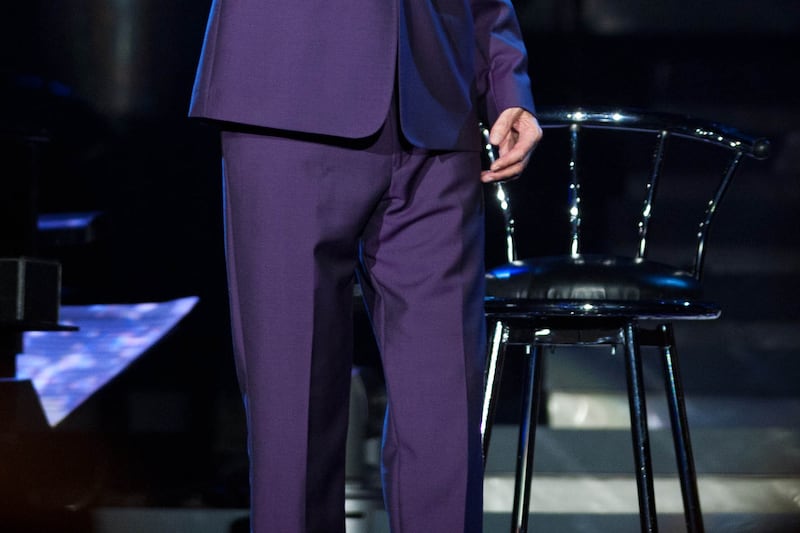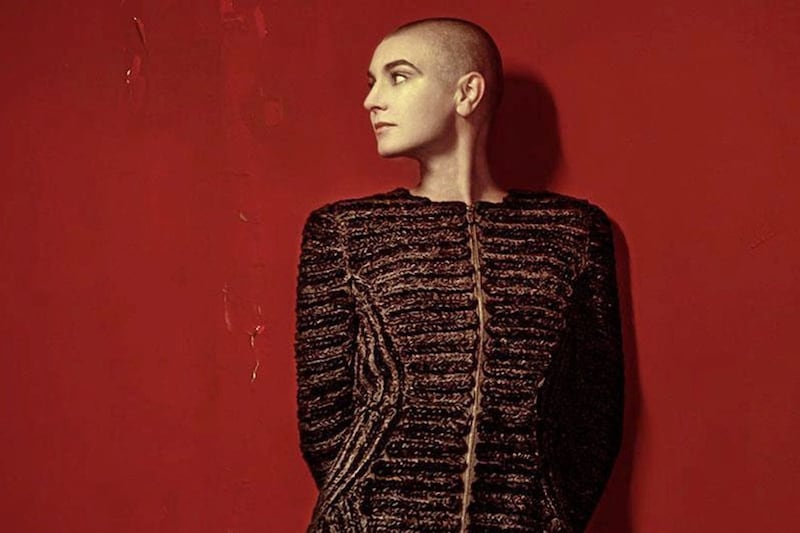Sinead O’Connor remained one of the most impactful stars in the history of Irish popular music up until her death – someone unafraid to challenge authority and to speak out when others remained silent.
Her boldness was exemplified by her appearance on US comedy show Saturday Night Live in 1992, when she caused jaws to drop by tearing up a picture of Pope John Paul II following her performance of the Bob Marley song War.
The incident would go down in history both in the US and back home in Ireland, with the Dublin star calling out “fight the real enemy” after ripping apart the image and leaving the audience and show’s producers stunned into complete silence at what they had just witnessed.

The act led to her being dubbed a “holy terror” by the New York Daily News, and although the incident initially flew under the radar back home, it came ahead of the clerical abuse scandal that would rock the very foundations of the Catholic Church in Ireland a few short years later.
Carried out as a protest against the abuse of children, the image of the Pontiff had belonged to her mother, at whose hands she had suffered abuse as a child. She would later claim the act was “a way of ripping her up as well”.
The artist knew first hand of the horrors she was protesting, having been forced into a Magdalene laundry at the age of 14 for 18 months. She would later state her incarceration in the institution in Dublin left her “deprived of a normal childhood”.
Read more:
- Tributes to ‘wise and visionary' Sinead O'Connor
- Sinead O'Connor death: Met police confirm singer was found unresponsive at her home in London
In her 2021 memoir Rememberings, she said that far from being a blow to her career, the incident was cathartic and actually “put me back on the right track”.

She said the phenomenal success of her single Nothing Compares 2 U had “derailed” her, as the music industry wanted her to conform as a typical female pop star and a “good girl”, a label she saw as “like being in a type of prison”.
O’Conner stood strong in the face of mounting criticism after the TV incident, including from showbiz faces such as Goodfellas actor Joe Pesci, who appeared on Saturday Night Live the following week and declared to laughter and applause from the audience that he “would have gave her such a smack” had he been a guest during the previous broadcast.
Singer Frank Sinatra dubbed her a “stupid broad” and told a concert audience he would “kick her ass if she were a guy”.
Unperturbed by threats from the aging Rat Pack crooner, who was infamous for his temper and womanising, O’Connor said in her memoir that she later stayed in the same hotel as Sinatra, and joked: “I’m thinking my father back in Dublin isn’t gonna be too pleased if I tell him I had to, in self-defense, beat the crap out of Ol’ Blue Eyes.”
- Ireland reacts to the death of Sinead O'Connor
- 'We used to walk around Derry,' film director recalls memories of touring with Sinead O'Connor
In 1990, O'Connor's decision not to allow the US national anthem to be played before her concert in New Jersey during the height of patriotic fervour over the Gulf War earned an avalanche of criticism from conservative cultural pundits and fans and radio stations banned her music.
The following year, at the peak of her fame and nominated for Best Record in The World at the 1991 Grammys for the global smash Nothing Compares 2 U, O'Connor shocked the US music industry by boycotting the ceremony, penning an open letter condemning the organisers for their obsession with celebrating "material gain" while marginalising black artists. Rap legends and fellow Grammy nominees Public Enemy joined O'Connor in her boycott.
All this culminated in the Irish star's records, CDs and tapes being publicly destroyed by a steamroller in New York's Times Square in October 1992, shortly before a good 50 per cent of the audience at a star-studded Madison Square Garden concert honouring O'Connor's hero and musical inspiration, Bob Dylan, unsuccessfully attempted to boo her off stage.

A quest for spiritual fulfillment
Throughout her career, she recorded 10 solo albums, wrote songs for films and collaborated with other artists.
In later years, O’Connor’s search for a spiritual home outside of her Catholic upbringing saw her join an independent offshoot sect, the Latin Tridentine Church, in which she was ordained as a priest in 1999 and took the name Mother Bernadette.
In the mid-2000s, she embraced the Jamaican Rastafari faith, even recording a Reggae-inspired album in Kingston, and claiming she “would not be alive today if it was not for the teachings” of the religious movement which venerates the late Ethiopian emperor Haile Selassie.
Read more:
- 'You praise her when it is too late' - Morrissey hits out at celebrity tributes to Sinead O'Connor
- Sinead O'Connor filmmaker reflects on enduring power of Nothing Compares 2 U

In 2018, she converted to Islam, changing her name in the process to Shuhada Sadaqat in the process, and told RTÉ’s Late Late Show the following year: “I had been a Muslim all my life and didn't realise it.”
Her personal faith provided comfort during her ongoing struggles with mental health, and when faced with the monumental grief of losing her son Shane to suicide last year.

She described holding a Hindi funeral ceremony for the 17-year-old, whose father was musician Donal Lunny, in honour of the faith he held in the years before his death.
For a further understanding of O'Connor's complex relationship with religion, fans can look to her 2007 album Theology.
The star wrote of the recording: "When I go out in a coffin it is the only album I am bringing with me.”
The 56-year-old was found dead in her London home and is survived by her three children.








